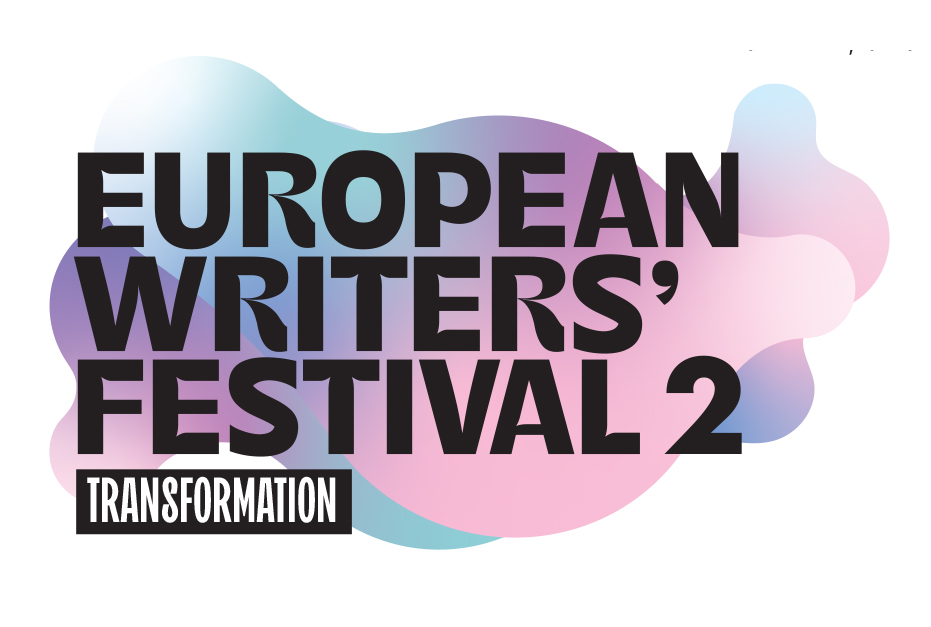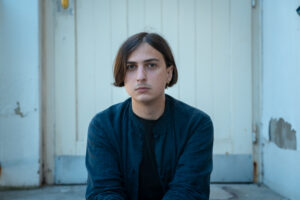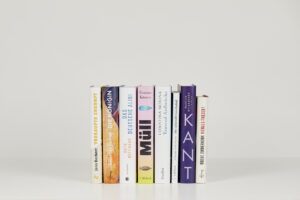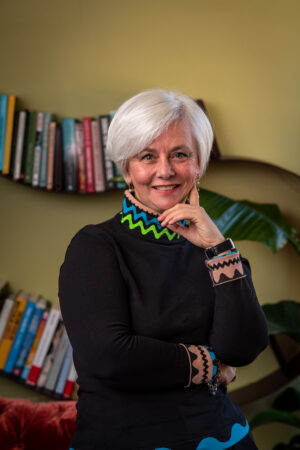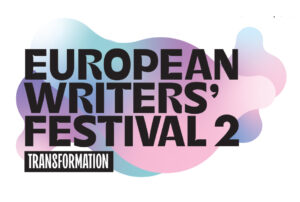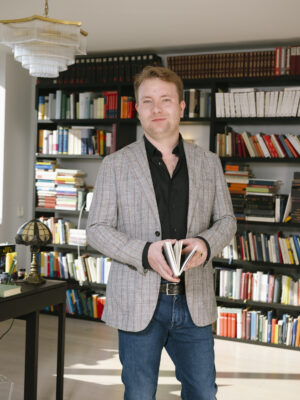Festival curator Rosie Goldsmith takes time out from event preparations to talk to us about the upcoming festival which she describes as a ‘gathering place for anyone interested in European literature, translation and publishing in the UK’.
Rosie, thank you for taking the time to talk to us today. I know you are busy with preparations for the European Writer’s Festival 2, which will take place in London later in May. Could you tell us more about the event?
The EUROPEAN WRITERS’ FESTIVAL takes place from 18-19 May at the British Library in London. Over one weekend of panels and performances you can meet 30 emerging and established writers from all over Europe. Names such as Dean Atta (Cyprus), Selcuk Altun (Turkey), Anne Berest (France), Christos Chomenidis (Greece), Emma Dabiri (Ireland), Joanna Elmy (Bulgaria), Milena Michiko Flašar (Austria), Ioana Parvulescu (Romania), Margo Rejmer (Poland) and Sasha Salzmann (Germany).
Our special guest, the Ukrainian author Andrey Kurkov, will also be in conversation with The Guardian’s Luke Harding on the Saturday night. I am the Artistic Director for the second year, in other words the curator of the festival, although it’s organised by the European Union National Institutes of Culture (EUNIC) London, in partnership with the European Literature Network (my organisation) and the British Library (faithful friends of European literature in the UK), and with the support of the Delegation of the European Union to the United Kingdom and the European Parliament Liaison Office in the United Kingdom.
That might sound like lots of people but we are a very tiny team and on a daily basis it’s just me, myself and I and the quite brilliant Executive Secretary of EUNIC Anastasia Mina.
I can honestly say that I was surprised at last year’s success – it usually takes festivals an average of 5 years to make a dent – but I also know that there was a vast gaping European hole left in the UK after Brexit and the privations of the pandemic.
Rosie Goldsmith
The first festival took place last year – how did the idea come about and how was last year’s festival received?
The festival idea was first proposed by EUNIC members as an addition to their existing UK cultural projects. The members raise money among themselves, each member country draws up a short list of (ideally) three living authors who have published in English over the past 3-5 years and who they’d like to propose for participation in the festival. Any country in Europe is eligible to participate, not just the EU, although the host country needs to pay the authors’ fees, transport and accommodation. My task is then to read through all the submissions, extracts, biographies and select my first and second choice from each country. The authors are then approached with invitations. Last year, for our first festival we also hosted 30 writers – there are 30 this year too, but that’s coincidental as several countries don’t participate, mainly for practical or financial reasons.
I can honestly say that I was surprised at last year’s success – it usually takes festivals an average of 5 years to make a dent – but I also know that there was a vast gaping European hole left in the UK after Brexit and the privations of the pandemic. EWF (for short) fills that hole in so many ways. I see it as a gathering place for anyone interested in European literature, translation and publishing in the UK. For 2024 we already have ten times more interest and I’m approached directly by all kinds of people wanting to participate – sadly not people with money.
Our festival too suffers from the crushing cuts to the arts in the UK. Ideally, I’d like to run a week-long festival (and certainly have enough ideas and authors) but funding one weekend is tough enough. This is definitely a passion project. Thankfully I’ve been able to garner support from The Guardian, Times Literary Supplement, English PEN and University College London – their names alone enhance our status considerably.
As we in Europe are again shaken to the core by war and division, EWF hopes to demonstrate that community, debate, entertainment and storytelling can unite us in creating hope and positive transformation.
Rosie Goldsmith
The theme for this year’s festival is “Transformation” – can you tell us a little more about that?
The writers will respond to this year’s theme of Transformation, because change, and the challenges of the fast and furious changes in society, politics, technology, culture, language, and more, rock our lives. As we in Europe are again shaken to the core by war and division, EWF hopes to demonstrate that community, debate, entertainment and storytelling can unite us in creating hope and positive transformation.
Transformation denotes dramatic change in our lives or circumstances. It can be extreme or radical, it can be negative or create magic or joy. All the writers at our festival have confronted change, maybe in the languages they use, in the country they call home – driven out by conflict, climate change, ideology or by attacks on their gender and human rights. Or they may have completely changed the discipline or genre they work in. Their motivation may be love or religion or politics or money, or simply a desire to travel, or just to make us laugh. We provide a platform for writers to openly discuss, and read from, their latest work in English translation, and together show what transformation means to them.
What makes for a really great festival program? There must be a huge amount involved in putting it all together. How long does it all take?
Over the decade or so since I left the BBC and went freelance, my favourite professional pursuit has been interviewing authors, artists and thinkers at festivals – and I’m lucky enough to work at some of the best. I’ve learned so much from working at all kinds of festivals – not just about what makes a good interview and one-off event but what it takes to create ambience, loyalty and coherence: everything has to come together, the quality of the writing, the authors’ personalities, moderators, technology, seating arrangements, marketing, hospitality – it is similar to producing a major BBC TV series. Everyone has a part to play and the whole is greater than the sum of its parts. To organise a weekend like EWF takes about 9 months. I also try to read all the books by all the authors, to guide the panels and decide on themes. I also write all the PR and copy.
Does European literature get the column inches it deserves in our media?
No. Of course I would say that – but it’s true and the rapidly diminishing review pages in print and online are a concern. I care about column inches for all the arts, written by specialist critics as well as amateur bloggers. There are some wonderful book bloggers out there but translated literature is less well served by, for example, BookTok, so I’m delighted to welcome our first social media book star, Hena J Bryan, to the team. My aim with the festival is to involve all ages and to show everyone that translated literature is as good/readable/accessible as any other literature.
The European Literature Network, which I set up in 2009, publishes reviews, blogs and magazines (The Riveters)– it fills another of those vast gaping holes I mentioned but we rely on goodwill and professionals who share our ethos.
Most of the authors and audience members attend for the whole weekend so it’s a powerful gathering of brilliant minds. Lots of talking, bookselling (important!), networking and fun. It has to be fun. It has to be unforgettable.
Rosie Goldsmith
When you are on the stage as the festival opens, how will you feel?
It is a massive relief when the festival begins! By then everyone has arrived, everyone is enthusiastic and raring to go. As each author only appears once and on one panel they know they need to make an impact – so the energy is infectious. Sadly we can’t afford to run the festival any other way – giving the authors more time – but so great is the impact of EWF on audiences and on scouts (it’s a great place for publishers and agents to scout their next stars) that they realise that their 15 minutes of fame (well, actually 75 minutes!) is worth its weight in gold as far as the impact on the UK market. Most of the authors and audience members attend for the whole weekend so it’s a powerful gathering of brilliant minds. Lots of talking, bookselling (important!), networking and fun. It has to be fun. It has to be unforgettable. I aim high.
When you were travelling and presenting for the BBC on current affairs, did you imagine that you’d transition to giving people a view into different countries and cultures through a literary lens one day?
Interesting question! What I do know is that what I do today tallies completely with what I did at the BBC and what I love doing – travelling the world (in person and through books), interviewing people and sharing stories. I learned my trade as a journalist at the BBC but I always read widely, wrote continuously, ‘performed’ and used my languages, so there is a logic in this path I’ve taken – although I certainly couldn’t have predicted it. I have always wanted to make a difference, however idealistic that sounds, and this work promoting European literature in the UK is not just fascinating but necessary.
Finally, can you tell us who you’d like to have at your dream literary dinner party?
It will be a very big dinner party – but I guarantee great food and wine: Margaret Atwood, Olga Tokarczuk, Elena Ferrante, David Mitchell, Elif Shafak, Ian McEwan, Sjon and Georgi Gospodinov. Ferrante might not even turn up of course but the dinner party would be memorable!
Find out more!
Festival tickets – secure your attendance via the link
European Writers Festival 2 – Transformation – the festival website
Programme and Panels – the full festival programme
European Literature Network – The European Literature Network was created with the mission of championing great writing from Europe in the UK
The Riveter – The Riveter is a free magazine devoted to riveting European literature in English. You can read the magazines in pdf at the link.
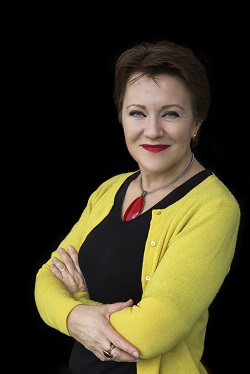
Rosie Goldsmith is an award-winning journalist specializing in arts and foreign affairs. A BBC staff broadcaster for twenty years, she travelled the world, presented several flagship programmes such as Crossing Continents, A World In Your Ear, Open Book and Front Row. Rosie is a passionate linguist (French, German and Italian) and has lived in Europe, Africa and the USA.
Today she combines journalism with chairing and curating arts and literary events in the UK and across the world. Rosie is Founder and Director of the European Literature Network, Editor-in-Chief of The Riveter magazine and was Chair of the Judges of the EBRD Literature Prize from 2018-2020.

